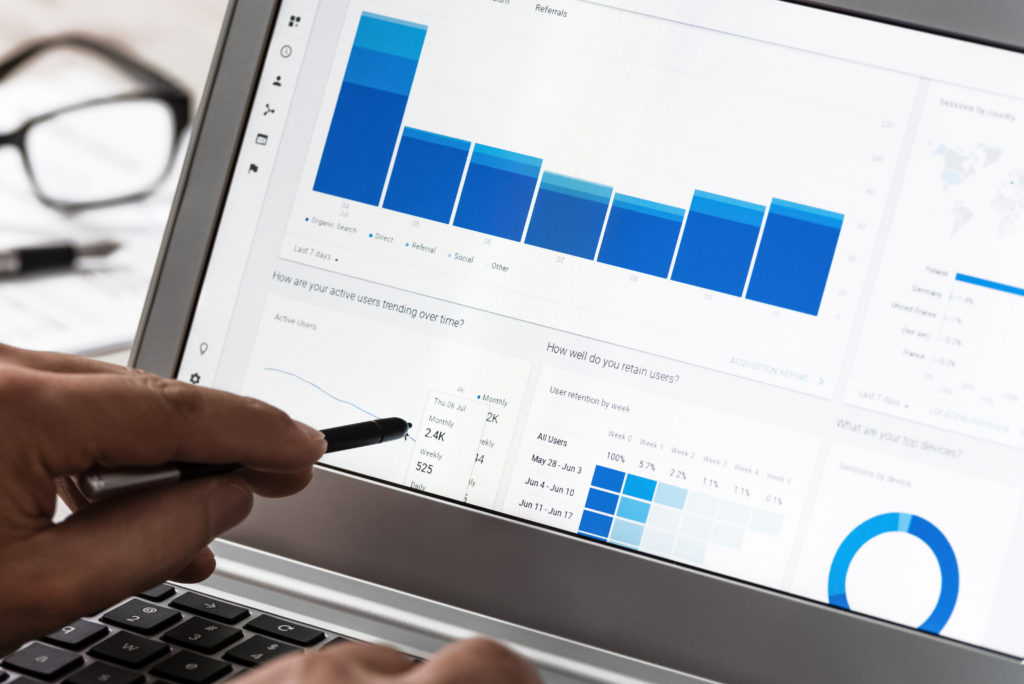
Introduction to Data Analytics
In today’s data-driven world, the ability to extract meaningful insights from vast amounts of information has become a critical business necessity. This is where data analytics comes into play. Data analytics refers to the process of examining data sets to draw conclusions and make informed decisions. It involves various techniques, such as data mining, predictive modeling, and statistical analysis, to uncover patterns, trends, and correlations.
As businesses become increasingly digitized, the importance of data analytics in driving growth and innovation cannot be overstated. By harnessing the power of data, organizations can gain a competitive edge, optimize operations, and enhance customer experiences. From understanding consumer behavior to predicting market trends, data analytics has become a cornerstone of modern business strategy.
The Importance of Data Analytics in Business
Data analytics has transformed the way businesses operate, enabling them to make data-driven decisions with precision and accuracy. By analyzing large volumes of structured and unstructured data, organizations can gain valuable insights into customer preferences, market dynamics, and industry trends. These insights help businesses identify new opportunities, develop targeted marketing campaigns, and improve overall operational efficiency.
Moreover, data analytics plays a crucial role in identifying and mitigating risks. By analyzing historical data and identifying patterns, businesses can proactively identify potential risks and take appropriate measures to minimize their impact. This allows organizations to make informed decisions, reduce operational costs, and optimize resource allocation.
In addition to driving operational efficiency, data analytics also helps businesses improve customer satisfaction. By analyzing customer data and feedback, organizations can gain insights into customer needs, preferences, and pain points. This enables businesses to personalize their offerings, enhance customer experiences, and build long-lasting relationships with their customers.
Trends and Advancements in Data Analytics
Data analytics is a rapidly evolving field, with new trends and advancements emerging regularly. One such trend is the increasing use of artificial intelligence (AI) and machine learning (ML) algorithms in data analytics processes. AI and ML algorithms can analyze vast amounts of data at lightning speed, enabling businesses to derive insights and make decisions in real-time. This technology also allows for the automation of repetitive tasks, freeing up human resources to focus on more complex and strategic activities.
Another trend in data analytics is the rise of cloud-based analytics platforms. Cloud computing has revolutionized the way data is stored and processed, offering businesses scalability, flexibility, and cost-effectiveness. With cloud-based analytics platforms, organizations can access and analyze data from anywhere, at any time, without the need for extensive IT infrastructure.
Additionally, advancements in data visualization techniques have made it easier for businesses to interpret and communicate complex data insights. Visualizations, such as charts, graphs, and dashboards, enable decision-makers to quickly understand key trends and patterns, making it easier to identify opportunities and make informed decisions.
Challenges and Opportunities in Data Analytics
While data analytics offers immense opportunities, it also presents several challenges. One of the biggest challenges in data analytics is ensuring data quality and accuracy. Poor data quality can lead to erroneous insights and unreliable decision-making. Therefore, organizations need to invest in robust data governance practices, data cleansing techniques, and data validation processes to ensure the integrity and accuracy of their data.
Another challenge in data analytics is the increasing volume, variety, and velocity of data. With the proliferation of IoT devices, social media platforms, and other digital sources, businesses are inundated with massive amounts of data. This creates a need for scalable and efficient data storage, processing, and analysis solutions.
Despite these challenges, data analytics presents vast opportunities for businesses. By leveraging data analytics, organizations can optimize operations, improve customer experiences, and drive innovation. The ability to extract insights from data can give businesses a competitive edge, helping them stay ahead in today’s rapidly evolving marketplace.
Data Analytics Tools and Technologies
The field of data analytics is supported by a wide range of tools and technologies. These tools enable businesses to collect, store, analyze, and visualize data, making it easier to derive insights and make data-driven decisions.
One of the most widely used tools in data analytics is Apache Hadoop. Hadoop is an open-source framework that allows for the distributed processing of large datasets across clusters of computers. It enables businesses to store and process massive amounts of data in a cost-effective and scalable manner.
Another popular tool in the field is Tableau. Tableau is a data visualization software that allows businesses to create interactive and visually appealing dashboards, charts, and graphs. It makes it easier for decision-makers to understand complex data and derive actionable insights.
In addition to these tools, programming languages such as Python and R are widely used in data analytics. These languages provide a wide range of libraries and packages that facilitate data manipulation, analysis, and modeling. They are particularly popular in the field of machine learning, where algorithms are used to make predictions and recommendations based on historical data.
Data Analytics in Different Industries
Data analytics has applications across various industries, revolutionizing the way businesses operate and make decisions. In the healthcare industry, for example, data analytics can help identify disease patterns, optimize treatment plans, and improve patient outcomes. By analyzing patient data, healthcare providers can identify risk factors, predict disease progression, and personalize treatment options.
Similarly, in the retail industry, data analytics can be used to optimize inventory management, improve supply chain efficiency, and personalize marketing campaigns. By analyzing customer data, retailers can understand customer preferences, identify buying patterns, and tailor their offerings to meet individual needs.
In the financial sector, data analytics plays a crucial role in fraud detection, risk assessment, and investment decision-making. By analyzing financial data, organizations can identify suspicious transactions, assess creditworthiness, and make informed investment decisions.
The applications of data analytics are vast and diverse, extending to industries such as manufacturing, telecommunications, transportation, and energy. In each industry, data analytics offers unique insights and opportunities for improvement, driving growth and innovation.
The Role of Data Analytics in Decision-Making
Data analytics has become an essential tool in the decision-making process, enabling businesses to make informed and evidence-based decisions. By analyzing data, organizations can gain insights into customer behavior, market trends, and industry dynamics. These insights provide decision-makers with a deeper understanding of the business landscape, helping them identify opportunities and mitigate risks.
Data analytics also helps decision-makers evaluate the impact of different strategies and initiatives. By analyzing historical data and conducting scenario analysis, organizations can assess the potential outcomes of different decisions, allowing them to make more informed choices.
Moreover, data analytics enables decision-makers to monitor and measure the success of their initiatives. By setting key performance indicators (KPIs) and analyzing relevant data, organizations can track progress, identify areas for improvement, and make data-driven adjustments to their strategies.
Overall, data analytics empowers decision-makers with actionable insights, enabling them to make better decisions, optimize resources, and drive business growth.
Data Analytics Careers and Skills
As the demand for data analytics continues to grow, so does the need for skilled professionals in the field. Careers in data analytics span a wide range of roles, including data scientists, data analysts, data engineers, and business intelligence analysts.
To excel in a data analytics career, professionals need a strong foundation in mathematics, statistics, and computer science. They also need to be proficient in programming languages such as Python, R, and SQL. Additionally, skills in data visualization, machine learning, and data mining are highly valued in the field.
Continuous learning and staying up-to-date with the latest trends and technologies are essential in the fast-paced field of data analytics. As the industry evolves, professionals need to adapt and acquire new skills to remain competitive.
Ethical Considerations in Data Analytics
As data analytics becomes more pervasive, ethical considerations become increasingly important. The collection and analysis of large amounts of data raise concerns about privacy, security, and the potential misuse of personal information.
Organizations need to adopt robust privacy policies and ensure compliance with relevant data protection regulations. They should also implement security measures to safeguard data from unauthorized access and cyber threats.
In addition, organizations must be transparent and accountable in their data analytics practices. They should inform individuals about the purpose of data collection and obtain their consent when necessary. Moreover, organizations should use data analytics responsibly and avoid using insights to discriminate or harm individuals or groups.
As data analytics continues to evolve, ethical considerations will play a crucial role in shaping the future of the field. Organizations that prioritize ethical data practices will not only build trust with their customers but also contribute to a more responsible and sustainable data-driven society.
The Future of Data Analytics
The future of data analytics looks promising, with new technologies and advancements on the horizon. One area of growth is the Internet of Things (IoT), which will generate massive amounts of data from interconnected devices. This will create new opportunities for data analytics in areas such as smart cities, healthcare monitoring, and supply chain optimization.
Another emerging trend is the integration of data analytics with other advanced technologies, such as blockchain and edge computing. Blockchain can enhance data security and integrity, while edge computing enables real-time data analysis at the edge of the network. By combining these technologies, businesses can derive insights and make decisions faster and more efficiently.
Furthermore, as AI and ML technologies continue to advance, the capabilities of data analytics will expand. AI-powered analytics tools will become more sophisticated, enabling businesses to automate complex tasks, predict outcomes with greater accuracy, and uncover deeper insights from data.
In conclusion, data analytics has become an indispensable tool for businesses in today’s data-driven world. By harnessing the power of data, organizations can gain valuable insights, make informed decisions, and drive innovation. However, as the field continues to evolve, businesses must prioritize ethical considerations and invest in the development of skilled professionals. By doing so, they can navigate the future of data analytics with confidence and reap the benefits it has to offer.
Conclusion
Data analytics has transformed the way businesses operate, enabling them to make data-driven decisions and gain a competitive edge. From understanding customer behavior to predicting market trends, data analytics has become a critical component of business strategy. However, with the increasing volume and complexity of data, organizations face challenges in ensuring data quality, scalability, and security.
To overcome these challenges, businesses must invest in robust data analytics tools and technologies. They need to develop a data-driven culture and empower employees with the necessary skills to leverage data effectively. By doing so, organizations can navigate the future of data analytics with confidence and unlock its immense potential.
So, whether you are a business owner, a data analyst, or a decision-maker, it is crucial to embrace data analytics and stay ahead of the curve. The path ahead may be challenging, but with the right tools, skills, and ethical practices, navigating the future of data analytics will lead to growth, innovation, and success.
Ready to unlock the power of data analytics and transform your business? Contact us today to learn more about our data analytics solutions and how they can drive your business forward.
